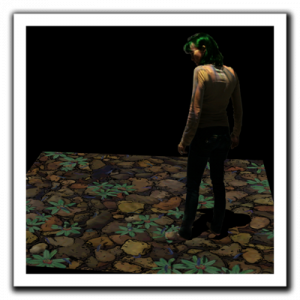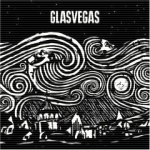Zack Booth Simpson gave an interesting lecture last week at the Blanton Museum on UT campus…the Evolution of Evolutionary Design. I met Zack when he was technical director at Origin Systems, years ago. Since, he’s taken himself away from commercial games and into scientifically-influenced art and molecular biology, among other things.
At the talk, I got to see Richard Garriot for the first time since his return from space. (I got to say, “Welcome back to Earth, man.” Not something I get to say to friends often, except in the cases where I mean it figuratively, after someone has gone off on a delusional tirade or a severe bender.) We touched briefly on Ultima IV–due to recent commentary across the ‘net–which always gives me a thrill, imaging what a modern Ultima IV would look like.
The subject(s) of the Blanton talk were informed by Zack’s position at the nexus of science, art and bricklaying and the speech was excellent; catch it via video or repeat performance if you can. Pleasing nerds of all flavors, Zack covered, no lie:
Ornamentation, history of
Algorithms, genetic
Craftsmanship, death and rebirth of
Art, definition of
Culture, development of
DNA nano-technology
Robots, self-replicating
Affine programs
Whale sperm
Suburban architecture
Cell phone towers
Life, meaning of
Toward the end of the talk, Zack showed off some of his new procedural tech-tool-toys, which always fire the imagination.
(Technically, this post is a day or two late, but had I completed it the day following Zack’s speech–as I planned–the subject line would be accurate.)



